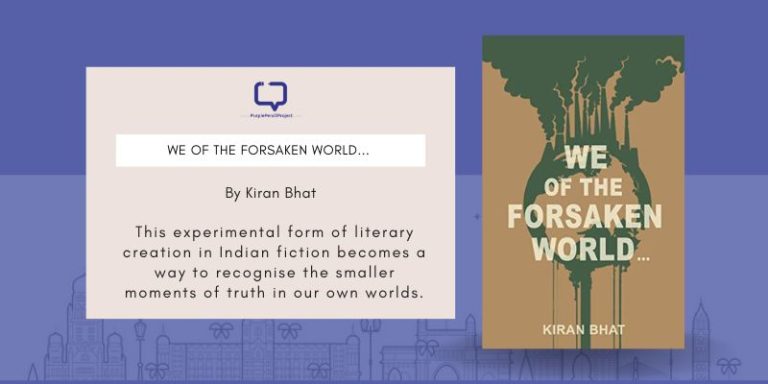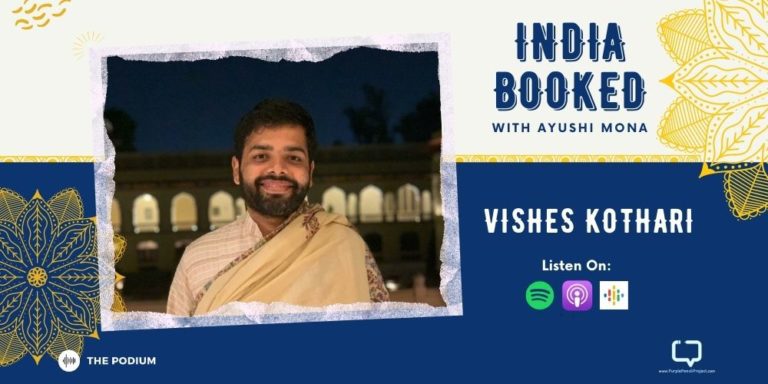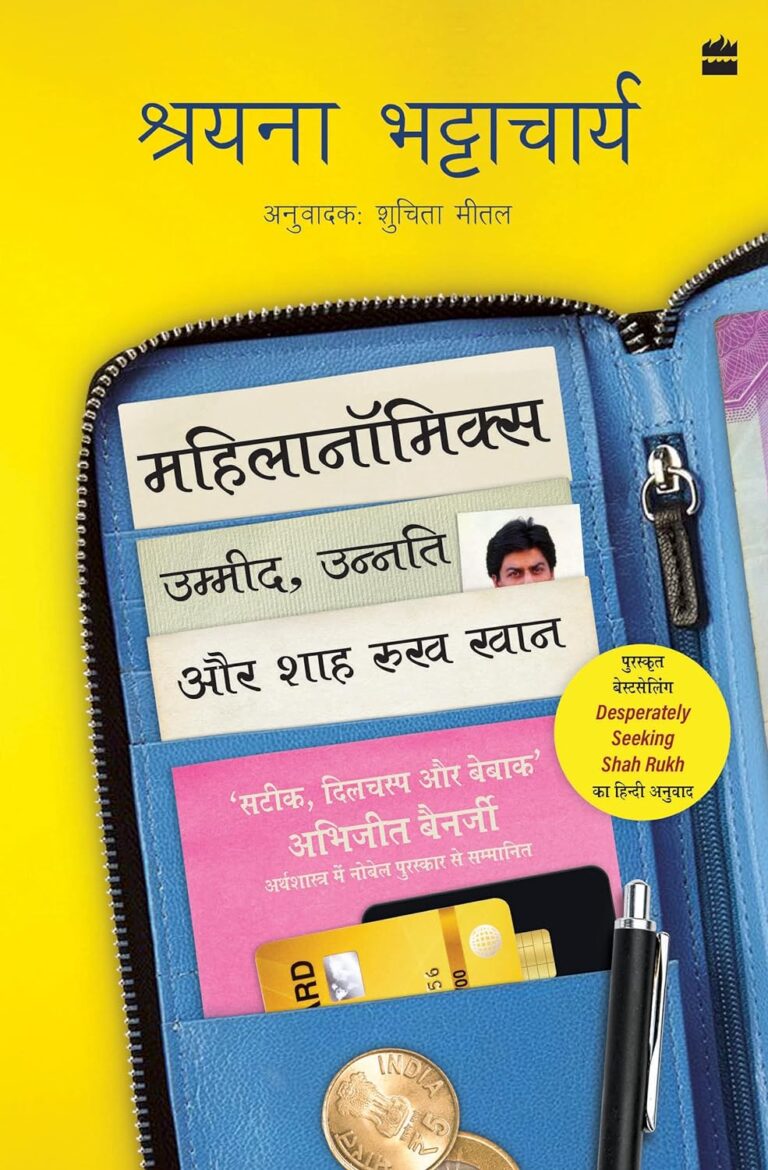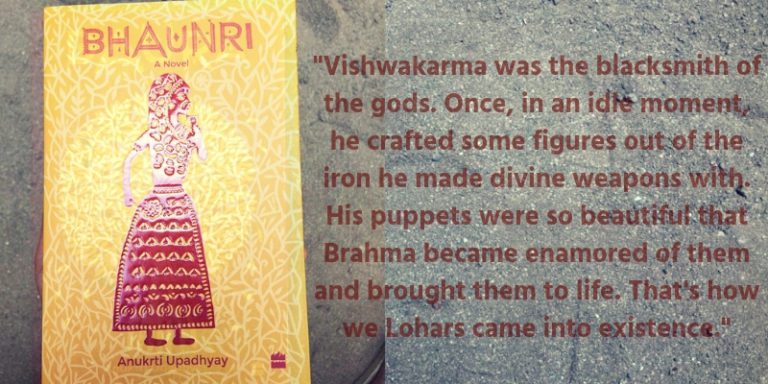Priyadarshini reviews Soft Animal by Meenakshi Reddy Madhavan (Published by Penguin India, 2023)
How does a privileged urban Indian millennial woman navigate work, marriage, and relationships with families and friends? What happens when these must be navigated under the pressure cooker conditions of the 2020 COVID lockdown?
Soft Animal by Meenakshi Reddy Madhavan is my favourite book this year. Equal parts cheeky and profound, it is written with an ease of language that needs no frills, no overblown metaphors, no exasperating poetry. In a stream-of-consciousness style narrative that stays surprisingly on course throughout, Reddy’s clarity of thought, acute and often hilarious observations, and commentary on the lives of the privileged urban millennials stand out.
We encourage you to buy books from a local bookstore. If that is not possible, please use the links on the page and support us. Thank you.
One reviewer on Goodreads referred to this book as chick lit, and I can see how to some, the main character of this novel may appear too privileged, too bored, too intelligent for her own good, or even too soft. I am also sure these are the people who can’t stop calling their wives, who are usually the last to sleep and the first to wake up in a household, lazy.
The Good Housewife and the Perfect Victim
To explain the literary genius of Meenakshi Reddy Madhavan’s Soft Animal, I will compare and contrast it to Anubhava Sinha’s critically acclaimed Tapsee Pannu starrer film Thappad.
Thappad opens with Amrita, this perfect wife going through her daily routine, making tea, checking on her mother-in-law, preparing meals, and catering to every little need of her husband. This is a wife adored by the husband, the mother-in-law, the neighbours, and the perfect homemaker. Maintaining harmony, making sure everything works, and shouldering the burden of the entire universe single-handedly without complaints.
That is till her husband loses his cool over a work matter and (for the first and only time) slaps her in the presence of friends and family. This slap acts as the pivotal moment, the trigger that leads to her walking out of this marriage. The slap, says Amrita, suddenly cleared the fog and revealed to her all the everyday unfair, inherently patriarchal acts that she had been ignoring to preserve an image of a blissful married life in her head.
This trigger, in the world of Meenakshi Reddy Madhavan’s Soft Animal, is the 2020 COVID lockdown in India. Mallika and Mukund are a privileged urban middle-class couple living in a gated society in Delhi. Mallika has recently lost her job and must play the perfect housewife (sorry, homemaker) to Mukund as he sits through zoom call after zoom call (and the occasional looking busy for the heck of it). The forced 24-hour proximity without any relief gradually ends up revealing the cracks in their marriage to Mallika.
“I realized yesterday that I don’t like my husband any more. It was an odd sort of realization, like when you lose something you don’t use very often-one of the gold earrings your mother-in-law gave you when you last saw her, a book you could swear you owned or the spare heads to your electric toothbrush. And you hunt for it, turning over each drawer, each shelf, your fingers scrabbling through every handbag and finally, you give it up for lost. When did you misplace it? Does the loss begin when it first went missing, even if you didn’t notice it as it slipped away? Or did the act of looking for it cause its loss? I just put it down there, just, I just looked away, and now it’s gone.”
Soft Animal by Meenakshi Reddy Madhavan
But here is where things get interesting in a way things can only get interesting in a book (or real life). Not only has Mukund never slapped or been equivalently emotionally cruel towards Mallika, Mallika is no perfect housewife blissfully smiling through her domestic duties and drudgeries like Amrita either.
“I make tea. I will make a cup for Mukund as well—he doesn’t seem to notice, but I am keeping a tally of things I do around the house, an invisible point system. He can never accuse me of not nourishing him; I am always feeding him, always dusting around him, always taking an extra biscuit for him from the tin and placing it on the rim of the saucer and taking it in to him and avoiding eye contact during this entire thing. I am such a good housewife.”
Soft Animal by Meenakshi Reddy Madhavan
In Amrita one sees a woman one is told to aspire to be. Beyond reproach and definitely undeserving of a slap. She is the perfect victim, and her walking out of her marriage is felt necessary and even applauded. And yet, it is in Mallika that I see myself. Through Mallika, Madhavan lays bare the privileged urban Indian millennial woman with complete honesty, intimacy, and self-awareness, and beautifully raises the stakes, making the reader wonder, can she justify Mallika’s emotional journey to the reader? For Mallika is neither perfect nor a victim.
The Inner Lives of Women and Men Oblivious to Women
This is the story of Mallika’s stream-of-consciousness style decoupling from Mukund, even as he sits around oblivious on his laptop in his pyjamas, rarely lending a hand or putting his plates and teacups back on the kitchen sink. Because Mallika is real, so is Mukund. He’s not asking her to do all the work, he even occasionally “helps” out. He’s a nice guy, but in the end, he’s just a guy being a guy! Then there is his utter lack of initiative in trying to understand the inner thoughts of his partner. Two individuals may share a roof and yet be mentally in two different corners of the cosmos. Or watching completely different genres on Netflix. Same thing.
Some might be triggered thinking he doesn’t deserve to be walked out on for this, but Mukund cuts a sorry figure because he is clueless. He is clueless because he does not even try to understand Mallika, being cocksure that he already does, and because he refuses to see, or sees and chooses to ignore the everyday slights and microaggressions of patriarchy. After all, his passive non-participation conveniently suits him.
Over the course of lockdown and as a part of the RWA initiative to support the elderly, Mallika befriends a retired brigadier in the building. She hopes that this will be an escape from sitting alone in a room next to her husband, because “no one to talk to when there is also someone else in the house … is its own sort of loneliness.” She hopes for a tropey-unlikely friendship between this reclusive widower and her, that will perhaps be revelatory and life-altering for the both of them. But the revelation comes from the journal of the dead wife of the old man instead, in which are scribbled some lines from the poem Wild Geese by Mary Oliver:
“You do not have to be good.
You do not have to walk on your knees
For a hundred miles through the desert, repenting.
You only have to let the soft animal of your body love what it loves.
Tell me about despair, yours, and I will tell you mine.”
“What is the soft animal of my body”, the dead wife had written in the margins of her journal, “How do I let it love what it loves?”
When shown to the old man, he is shocked to see it, as if he never knew that she too had an inner life that she needed to nurture, beyond her assigned duties as an army wife.
“I think about Mrs. Brig Rit again, and the men we live with who do not understand us at all.”
Recommended Reads: Before, and Then After by Meenakshi Reddy Madhavan
The Motherhood Question
The narrative complication arises when Mallika discovers that she is pregnant. As she contemplates whether to continue with her pregnancy or not, the reader is treated to some of the most profound and sophisticated writing in this book. The contemplation includes many profound questions, like what does it mean to be a good mother, and can you know before the fact if you will be a good or a bad mother? Or when does living come in and the cells become a “baby”?
“Would you mourn as much for a miscarriage as you would for a stillborn birth? Would you mourn as much for a stillborn birth as you would for a toddler? Would you mourn as much for a toddler as you would for a teenager? Why is it sadder that a ten-year-old dies than a thirty-year-old? Except for a mother— if you are a good mother then you are always sad when your child dies, even if your child is old enough to have lived a life beyond just your hopes of them. I think that’s probably what’s saddest, the hopes that have to die-with a miscarriage, a stillborn, a toddler, a teenager. A whole person you dreamed about and created and thought carefully over, suddenly removed as an option.”
Soft Animal by Meenakshi Reddy Madhavan
The question of motherhood vs abortion is not treated lightly and is examined with complete seriousness and sincerity.

Observational Comedy Gold
For all its heavy questions and millennial angst, this book is also quite hilarious. It is replete with observations about the daily lives of Delhiites, especially in the year 2020. Most of these observations are neatly separated away from the narrative and relegated, nay, elevated to footnotes (Don’t know about you but I absolutely adore footnotes in fiction).
This is also one of those rare books written by an Indian author where sex is actually written well. The intimate moments have been described with a matter-of-fact realness that is not shrouded in poetic metaphors and yet never seems crude. Perhaps because it is written by a woman.
Was this what made that Goodreads reviewer think of this book as chick-lit? Because it is also very funny? Because how dare the inner voice of the privileged Indian woman crack a joke and then expect to be called serious literary fiction?
Just because a woman is funny, doesn’t mean she is flippant about questions of marriage and motherhood. We millennial women have our coping mechanisms, humour being at the top of that list and we are very serious about it.
To conclude
Soft Animal is the definitive novel for the Indian Millennial generation. Meenakshi Reddy Madhavan deftly dissects the intricacies of privileged urban life, unveiling the vulnerabilities and complexities that lie beneath the surface. Its candid exploration of the inner lives of women like us makes it immensely relatable.
Meenakshi Reddy Madhavan’s writing just screams confidence, the effortless confidence of a writer who has been showing up at her writing desk every day of her life, and if you’ve been following her work from her blogging days, you know that is quite possibly true.
In this relevant and important novel of our times, Meenakshi Reddy Madhavan proves her literary prowess, making Soft Animal a standout work in contemporary Indian fiction. I am already looking forward to rereading it.
Favourite quote by Meenakshi Reddy Madhavan
“The same instincts that make you give your last sanitary pad to the woman in the crowded bar restroom who sidles up to you and whispers that she’s got her period. You’ve never seen her before in your life and you might get your period any minute now, but you pull it out of your purse and you hand it to her.
The same instincts that you have when you enter a crowded metro compartment and it’s only men, and you see a lone woman sitting there by herself and your eyes meet, and you both think, ‘Okay, there’s another woman, I’m safe for now?’ The same instincts that makes your friend walk you to her door and say, “Text me when you get home’ and you say, “Yeah, yeah’ dismissively, and you get home and you forget and she sends you another message going, ‘Have you reached?’ and you have to reply immediately because she’s waiting up for you, keeping you safe by her presence across the city, keeping vigil. It’s the same thing I’m calling on here, and I hope it works, because otherwise I will be all alone.”
Soft Animal by Meenakshi Reddy Madhavan
Have you read this definitive novel for the Indian millenial generation? What do you think of it? Drop a comment below and let us know!
As part of our effort to compensate our writers better, we at Purple Pencil Project have launched the #PayTheWriter initiative, where readers can directly show support and appreciation for our wonderful team.
Scan or upload this image on your UPI app, and show them the love 😀























